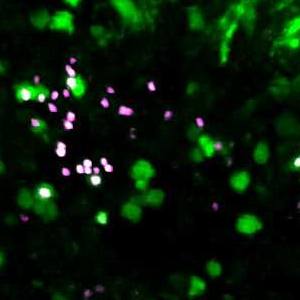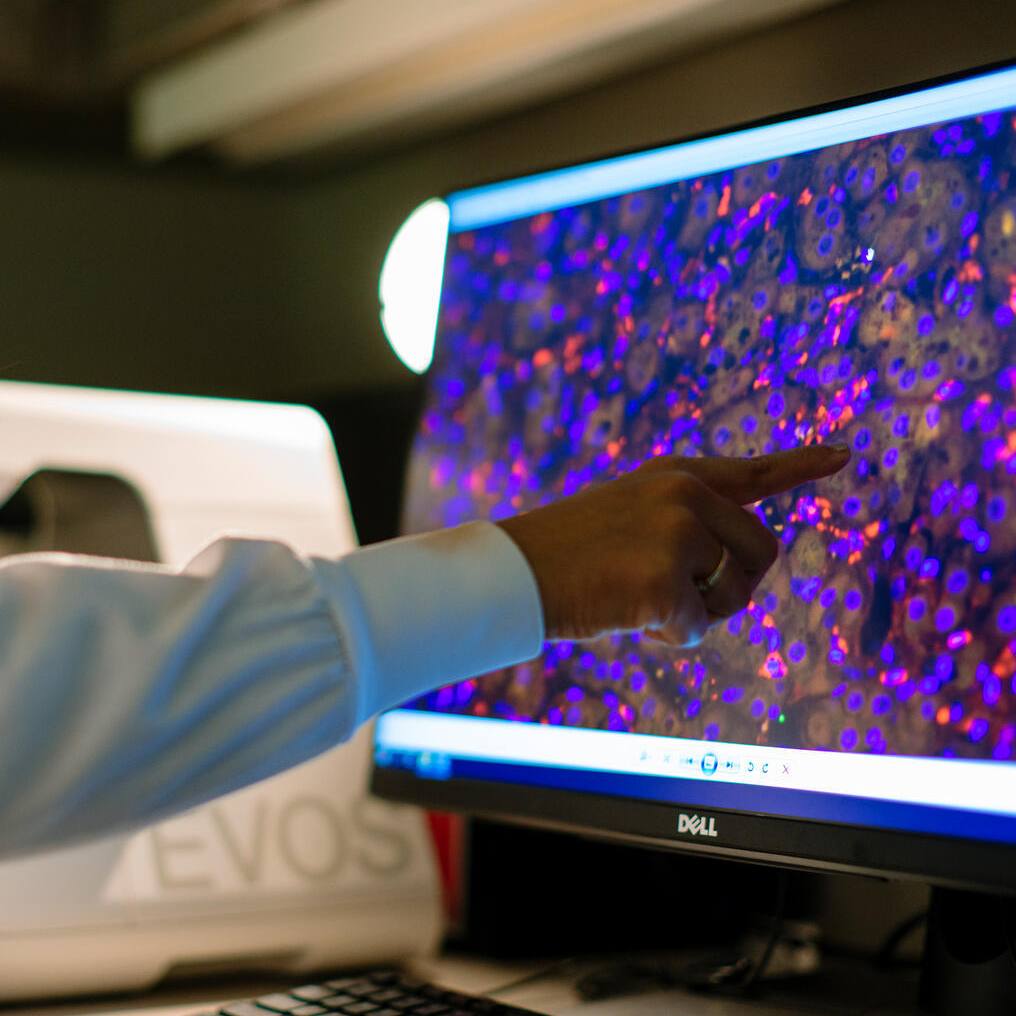-
Mayo Clinic Researchers Say Gene in Brain Linked to Kidney Cancer
JACKSONVILLE, Fla. — A gene known to control brain growth and development is heavily involved in promoting clear cell renal cell carcinoma, the most common form of kidney cancer, researchers from Mayo Clinic in Florida are reporting.
Their study, published in Cancer Research, reveals that the gene NPTX2, plays an essential role in this cancer type, which is resistant to common chemotherapy and has a five-year overall survival rate of less than 10 percent in patients with metastatic disease.
The study not only shows that NPTX2 is active in kidney cancer, but is the first to reveal that the gene is over-expressed in any human cancer. The researchers are now looking whether NPTX2 may act in other cancers.
“We found that a gene known to play a role in the healthy brain is also the No. 1 gene associated with this most lethal of all urological cancers,” says the study’s senior investigator and molecular biologist John A. Copland, Ph.D.
“We don’t know why NPTX2 is expressed in kidney cancer, but we now know what it is doing and how it contributes to cancer progression,” he says. “We also have very promising ideas about how to attack the NPTX2 protein — which may provide a much-needed new strategy to treat this kidney cancer.”
Because the NPTX2 gene is not expressed in normal kidney tissue, a drug designed to target its protein would provide a highly focused treatment, Dr. Copland says. The team is working on several different approaches to an NPTX2 inhibitor.
Lead author Christina von Roemeling, a graduate student at Mayo Clinic in Florida, used genomic profiling of nearly 100 kidney cancer patient samples to identify genes that were either over-expressed or under-expressed as compared to patient matched normal kidney tissue samples. Von Roemeling and the research team then individually silenced each of the top 200 altered genes to see the effect on tumor growth. They found 31 genes were important to growth of the cancer or its ability to survive, and from this group they determined NPTX2 was a key gene to cancer viability.
Co-author Derek Radisky, Ph.D., a cancer biologist, then searched for prevalence of the NPTX2 gene in kidney cancer using nine public genomic datasets, representing thousands of patients, and found it to be the top aberrantly expressed gene associated with this cancer.
“Nobody ever looked for NPTX2 as a potential tumor promoter in kidney cancer or any other cancer, from what we can tell,” says Dr. Radisky. “Before this study, the concept that it could even play a role in cancer had not been suspected.”
The researchers also discovered that a receptor — known as GluR4 — that the NPTX2 protein usually targets in the brain is also found in the kidney cancer samples.
They found out how NPTX2 and GluR4 promote cancer growth and metastasis. In kidney cancer, the over-expressed NPTX2 protein is secreted from the cell and then attaches itself to GluR4 on the kidney cancer cell membrane.
NPTX2 causes multiple GluR4 proteins to unite and form a channel into the cell, which allows calcium to flow in. “Elevated calcium triggers multiple signaling pathways that promote cell doubling, survival and changes in the cell that promote cancer invasion and metastasis,” says Dr. Copland.
Blocking the GluR4 channels caused the cancer cells to die, highlighting a possible avenue of therapy.
Investigators found that NPTX2 was expressed in all stages of kidney cancer, especially metastasis, which suggests it plays an important role in tumor development and progression. Its expression could be used as a biomarker test to ensure patients might benefit from an NPTX2 inhibitor, when one is developed.
Other authors and contributors to these discoveries include Mayo Clinic researchers Laura Marlow, M.S., Simon Cooper, Ph.D., Stefan Grebe, M.D., Ph.D., Panagiotis Anastasiadis, Ph.D., and Han Tun, M.D.
This work was funded in part from the National Institutes of Health / National Cancer Institute grants R01CA104505, R01CA136665 and R01CA104505-05S1; a gift from the David & Lois Stulberg Endowed Fund for Kidney Cancer Research; Francis and Miranda Childress Foundation Fund for Cancer Research; John A. and Bette B. Klacsmann Fund for Cancer Research at Mayo Clinic in Florida; Betty G. Castigliano Fund in Cancer Research Honoring S. Gordon Castigliano, M.D. Mr. and Mrs. Ompal Chauhan Research Fund; Kidney Cancer Research at Mayo Clinic in Florida; James C. and Sarah K. Kennedy Mayo Clinic Research Career Development Award for Clinicians; Scheidel Foundation; Fraternal Order of Eagles Florida State Auxiliary; and a grant for rare cancers from Dr. Ellis and Dona Brunton.
###
About Mayo Clinic
Recognizing 150 years of serving humanity in 2014, Mayo Clinic is a nonprofit worldwide leader in medical care, research and education for people from all walks of life. For more information, visit 150years.mayoclinic.org, mayoClinic.org or newsnetwork.mayoclinic.org/.
MEDIA CONTACT: Kevin Punsky, Mayo Clinic Public Affairs, 904-953-0746, Email: punsky.kevin@mayo.edu







